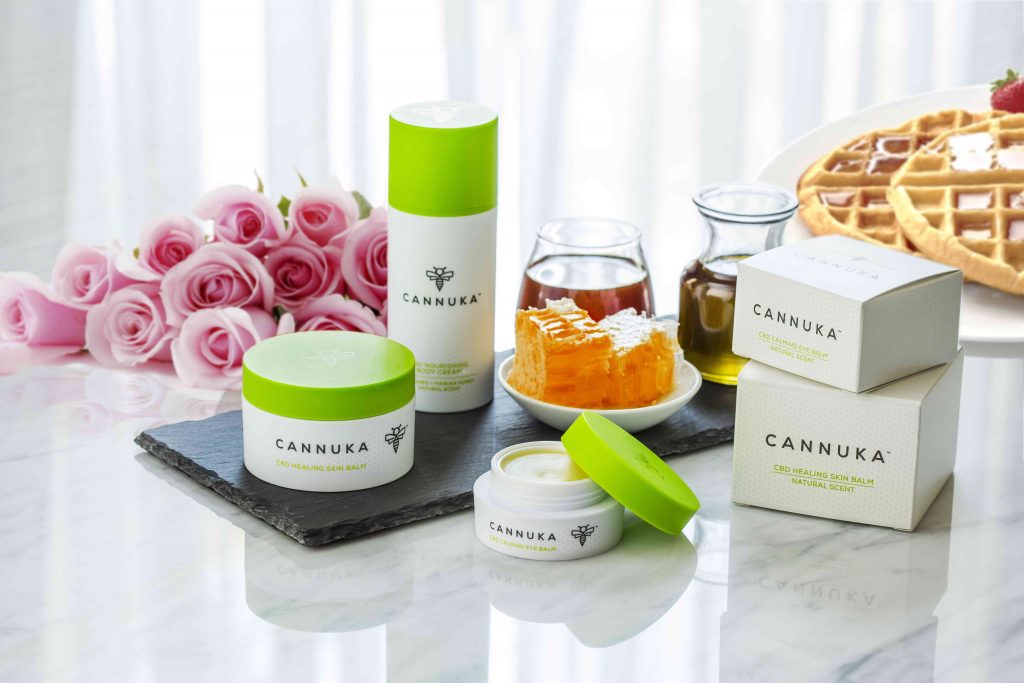
Four Areas Of Opportunity In The Enormous Wellness Market
Most activities seem to fall under wellness these days.
Ever had a shot of wheatgrass? Done a bit of yoga? Tried a product with CBD? Slept? At a recent panel discussion in Los Angeles, 100% of attendees raised their hands to answer these questions in the affirmative. Based on the unanimous show of hands, moderator Corey Weiss, head of business development for Ipsy Studios at beauty subscription service Ipsy, maintained every single audience member at the Skirball Center had participated in the wellness movement.
The exercise demonstrated the pervasiveness of wellness. It’s reached macro status and become an umbrella term for an endless array of consumer interests and behaviors. The makeup of panel itself, representing the hospitality, beverage, influencer marketing and CBD segments, illustrated the amorphous quality of wellness. The panelists included Michael Bumgarner, founder and CEO of Cannuka, Yanni Hufnagel, founder and CEO of Lemon Perfect, Kane Sarhan, co-founder and creative director of The Well, Ashley Lewis, CEO and co-founder of Fleur Marché, and Billy Hawkins, CEO of Elemental Creative Agency and Arsenic Magazine.
Against the backdrop of the more than $4 trillion global wellness industry’s ubiquity, the entrepreneurs provided a healthy dose of critical thinking about the direction of it. They drilled down on niches proving to be lucrative within the exploding industry that they believe will endure beyond the buzz of the latest wellness trend.
Wellness as elevated fitness
To Sarhan and Hufnagel, the contemporary notion of physical health extends beyond one-hour workouts. Hufnagel, a first-time entrepreneur, has plenty of experience with physical health in the traditional sense as a former collegiate basketball coach. He created Lemon Perfect to taste better than unpalatable lemon water, a keto diet staple, and simultaneously not be as sugary as the nutritionally-dubious raft of sports drinks on the market. Sarhan, after years as a much-lauded executive at Starwood Capital Group developing Baccarat and 1 Hotels & Homes, branched out to The Well, where he’s taking aim at the future of fitness. He labeled The Well “an eco-system for wellness” (think spa services, yoga, meditation space, organic restaurant, vitamin bar and reflexology lounge). The enhancement of fitness culture, according to the consensus on the panel stage, moves it past the era of no pain, no gain.
The Well’s membership club recently debuted in New York. A Los Angeles location and a second in New York are expected to follow soon. Sarhan, a millennial, reported that the initial pitch to investors, many of whom are older and don’t engage in wellness practices, wasn’t particularly well-received. “We were walking around and saying retail is dead, but we want to lease 18,000 square feet, spend $10 million to build a wellness club,” he recounted. “And we talked to hundreds of investors that were like, ‘No, like I’m not giving you my money.’”

Proof and efficacy
Evidence is an Achilles heel for the wellness industry. In its absence, personal epiphanies fuel wellness businesses, and they featured prominently in the panelists’ backstories. Each had made lifestyle choices that fed into their brands, and they offered testimonials on, for instance, the power of CBD for Lewis, hydration for Hufnagel, and low-stress and healthy choices for Sarhan. Their transformations were rooted in what Lewis described as the pursuit of “holistic, progressive, weird healing modalities.”
While their histories are meaningful, the panelists underscored a dearth of rigorous scientific studies and fraudulent products are the greatest threats to the rise of quality wellness brands. A person might experiment with acupuncture and bemoan that it doesn’t illicit a change, Sarhan mused, without ever realizing that they were treated by an unqualified, unlicensed acupuncturist not adhering to tested methods. Lewis, a former Goop executive arguing for the need to “rebrand cannabis as wellness,” pointed to the spread of subpar products touting CBD as potentially leading to consumer pushback against CBD claims. She applauded the work of Bumgarner, farmer-founder of CBD brand Cannuka, for sourcing and scientifically vetting his brand’s active ingredients. Bumgarner reinforced the importance of data for his brand.
“You’ve got to make sure your assumptions, meaning the product that you are passionate about [and] will sell to this audience or to the best in types of stores, that there’s data behind that,” emphasized Bumgarner. He and his fellow panelists indicated strong scientific backing can lift a wellness brand above the clutter in the category.
American anxiety
Sarhan, who depicted himself in his pre-wellness conversion state as a strung-out heavy smoker and hard charger, suggested the ascendence of wellness is, at leaset partially, in response to disillusion with the U.S. medical industrial complex he said has an overreliance on surgery and prescription drugs. For many consumers, wellness remedies, however ill-studied, trump medical procedures and pills that they’re increasingly reexamining. Despite the fact that American consumers have unprecedented access to stable food sources and modern conveniences, the panelists sensed an opportunity in genuine attempts to assuage their mounting anxieties.
“People are living longer, but feeling worse,” noted Lewis, explaining how the phenomenon has led to people investigating their health, and what they put in and on their bodies. Their individual research efforts result in a distrust of the food they’re eating and the sourcing of ingredients. “Everyone is just much more in tune [and open to ideas on] how to live healthier,” said Lewis. The heightened interest has opened the doors for products within the wellness space to be taken more seriously than ever. Citing Lululemon and Whole Foods Market as examples of disruptors that shifted consumer perception of wellness, Hawkins asserted, “Brands have driven the wellness revolution.”

The democratization of wellness
If the elitism of wellness purveyors isn’t a threat to the segment’s existence, it’s certainly a gaping hole in its philosophical foundation. While Goop’s assortment may never be obtainable for average consumers, some brands seek to widen the wellness industry’s demographics. At Lemon Perfect, Hufnagel wants to sell cold-pressed lemon water at an affordable price point. Originally, the five-calorie, zero sugar cold-pressed beverage was distributed to just four stores. Those stores allowed Hufnagel to demonstrate proof of concept before heading to grocery chains such as Bristol Farms and Whole Foods, where Lemon Perfect has broadened its reach.
Bumgarner has hinged his operation on income equality, starting with the revitalization of rural America through the cultivation of industrial hemp. “My mission—and it truly drives every decision we make—is how do we increase demand for this commodity? How can we put people in position to actually have enough money in their pockets to think about wellness and to make those wise decisions about what wellness is for them?” he asked. Bumgarner continued that people in rural America don’t currently have the same exposure to welless products or the ability to shell out for them as those living on the coasts. Bumgarner, informed by high bankruptcy levels and suicide rates in farming communities confronting with the opioid crisis, was motivated to develop a product addressing the question, “What can I do to help these farmers in rural America who are struggling?”
Lewis brought up difficult issues facing the cannabis sector. She said, “The number of minorities and people of color who are or were incarcerated for doing what we’re doing is insane.” According to the civil liberties nonprofit ACLU, marijuana arrests account for over half of all drug arrests in the U.S. Although they use marijuana about equally, blacks are 3.73 times more likely than whites to be arrested for marijuana in this country. Fleur Marché recognizes the reality of outsized minority incarceration and is building out a function on its website to donate a percentage on purchases to organizations helping people find their footing after prison.





Leave a Reply
You must be logged in to post a comment.